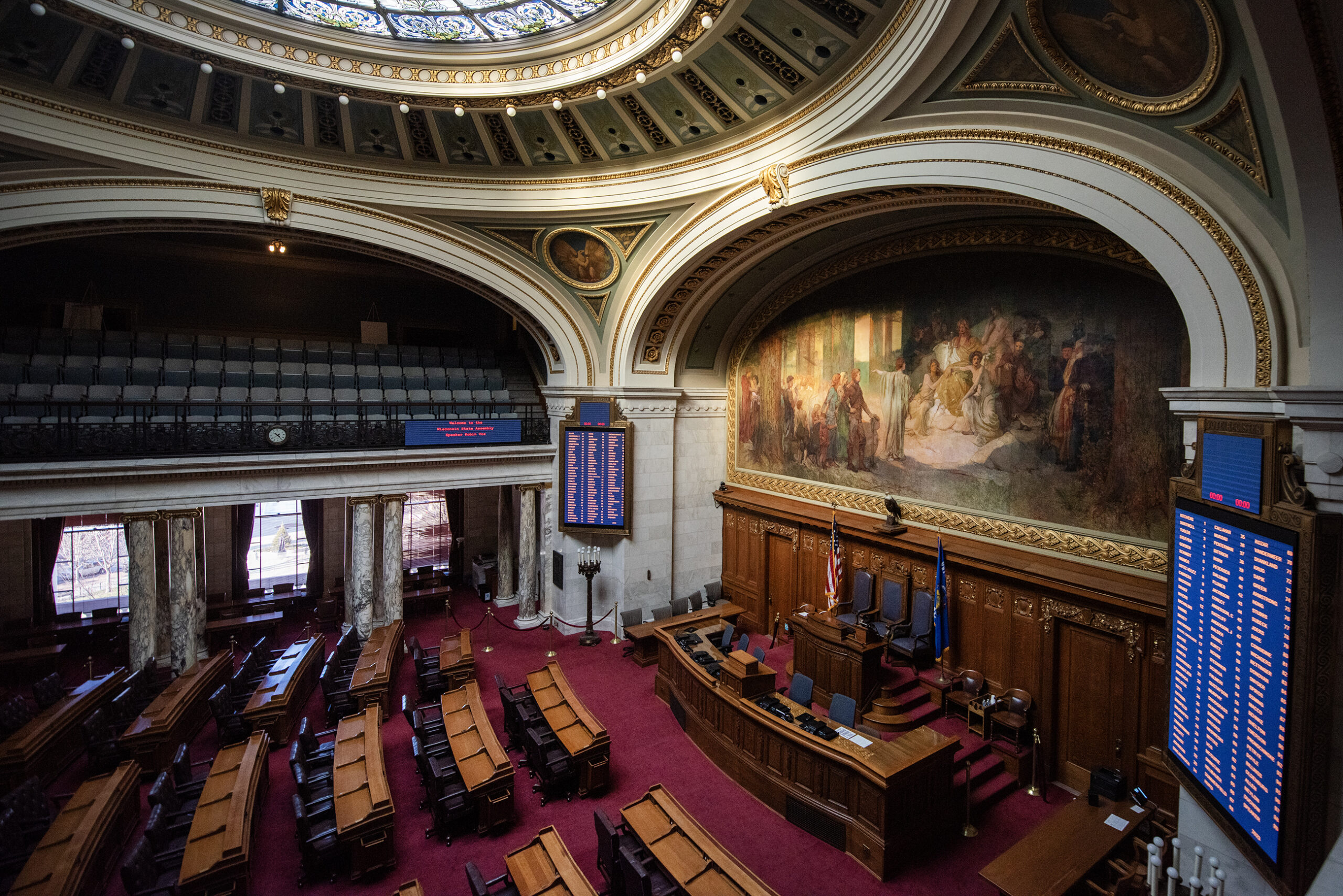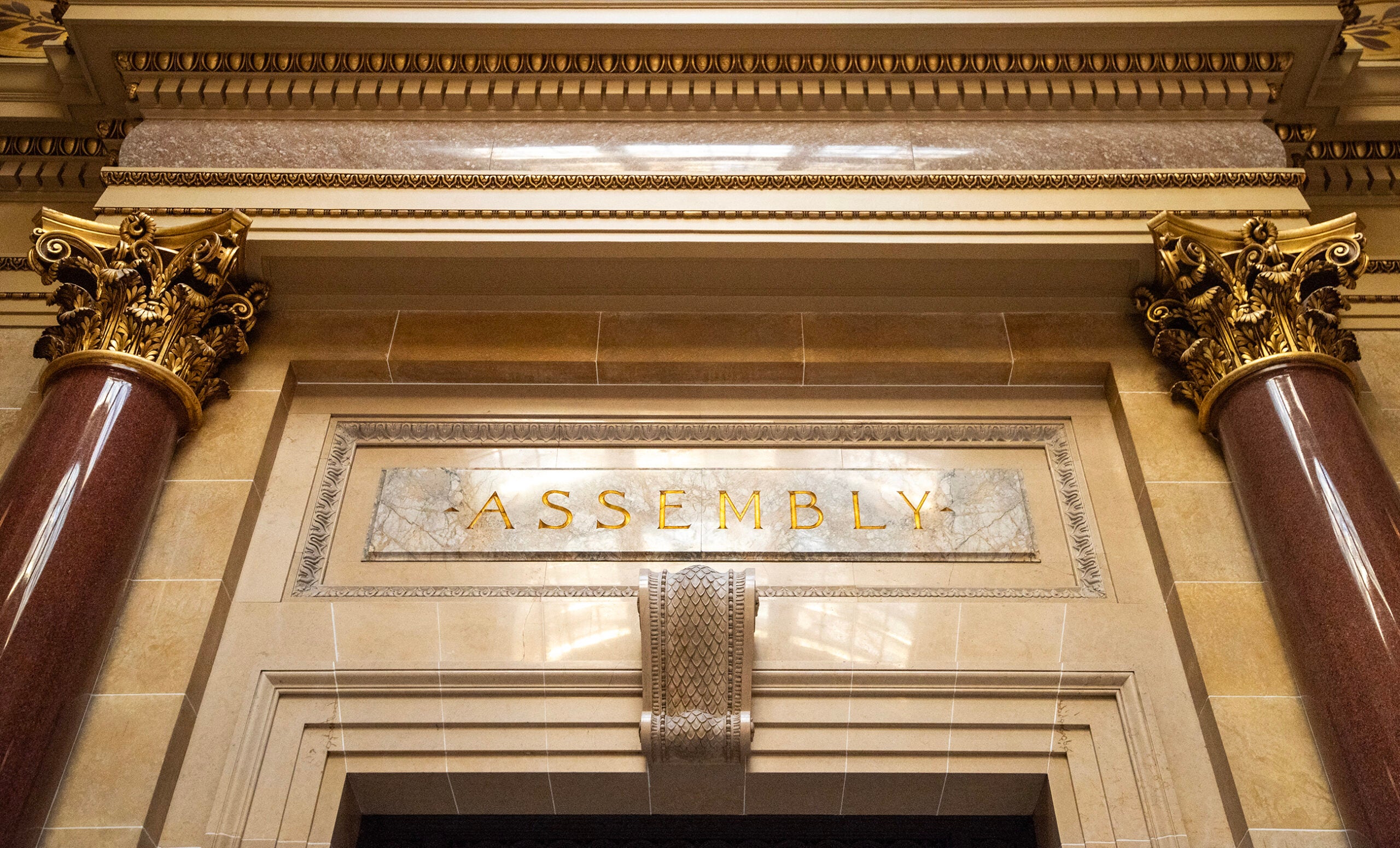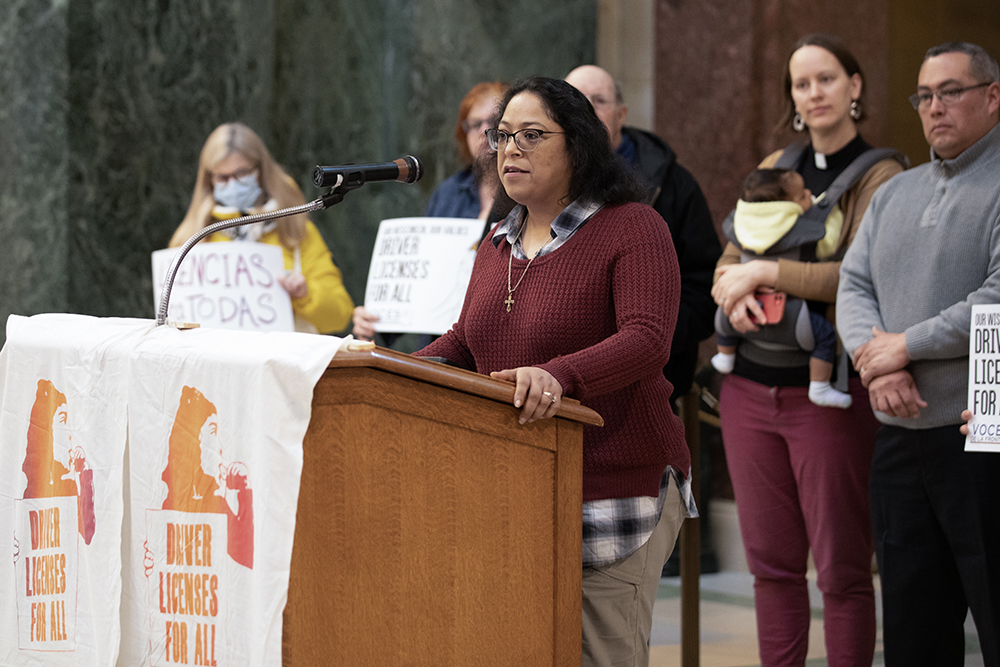Governments, including schools, would be banned from giving preferential treatment to people on the basis of their race, sex or national origin under a proposed constitutional amendment that passed the Wisconsin Assembly Thursday.
The resolution is the latest in the Wisconsin GOP’s push to eliminate diversity, equity and inclusion practices, known as DEI.
The joint resolution, which cleared the Assembly along a party line vote of 62-35, bars state and local governments, along with public schools and colleges, from “discriminating against, or granting preferential treatment” to any groups on the basis of race, sex, color, ethnicity or national origin.
The proposed amendment is supported by the conservative Wisconsin Institute for Law and Liberty, or WILL, while the Wisconsin chapters of the American Civil Liberties Union and the National Association of Social Workers have registered against. Written testimony from the Dane County chapter of the NAACP called the amendment unnecessary because state and federal laws barring discriminatory hiring practices already exist.
News with a little more humanity
WPR’s “Wisconsin Today” newsletter keeps you connected to the state you love without feeling overwhelmed. No paywall. No agenda. No corporate filter.
State Rep. Dave Murphy, R-Greenville, told colleagues during Thursday’s Assembly floor session the measure is about restoring “merit, fairness and equality” to hiring at state universities and “all government entities statewide.” He said it’s “different than equity in the buzzword DEI,” which Murphy claimed means that outcomes are the same “regardless of their skills or capabilities.”
“Despite state and federal statutes requiring legal equality, race-based preferences still exist,” Murphy said. “Rooting out racial discrimination will take a lot of work. But a constitutional amendment, not just another statute, will go a long way to advance equality.”
State Rep. Sylvia Ortiz-Velez, D-Milwaukee, called the resolution “divisive and manufactured.”
“The bill ignores the historic discrimination and those effects on marginalized communities,” Ortiz-Velez said.
Ortiz-Velez said throughout her life, she “had to work harder than every single person around me that didn’t look like me just to be treated equally.”
“This notion that there’s some preferred treatment does not ring true,” Ortiz-Velez said.
This is the first consideration of the proposed amendment to Wisconsin’s constitution. Before it can be enacted, the measure must pass both houses of the Legislature in two separate sessions and be approved by voters in a statewide referendum.
Republicans have been focused on what some lawmakers have called “racist” DEI initiatives on state campuses for the better part of a year. In December, Assembly Speaker Robin Vos, R-Rochester, scored a win when he got the University of Wisconsin System Board of Regents to freeze DEI staff positions across the state and effectively ended a UW-Madison recruitment program aimed at hiring more diverse faculty.
In exchange, Vos agreed to release pre-approved funding that went to pay raises for around 34,000 university employees and building projects including a new engineering building at UW-Madison.
Judicial security package responding to increasing threats against judges clears Assembly
A series of bipartisan bills aimed at protecting Wisconsin judges and Supreme Court justices also passed the Assembly Thursday. The legislation would increase privacy privacy protections and shield some of a judge’s personal information, like the floor plans of their home, from the state’s public records law. The package would also make it illegal to demonstrate at a judge’s or justice’s residence with intent to affect a court case.
Backers said the bills come in response to the 2022 murder of retired Juneau County Circuit Court Judge John Roemer and an increase in threats against judges around Wisconsin.
State Rep. Supreme Moore Okomunde, D-Milwaukee, voted against the bill. He said most judges are elected and citizens should have the right to protest their decisions. Okomunde said he believes protesting outside a public official’s home usually doesn’t open a dialogue.
“That being said,” Okomunde said, “the off chance that agitation does transition into negotiation, I think that this tactic should still be available.”
Rep. Ron Tusler, R-Harrison, balked at the suggestion.
“You feel like you need to intimidate them? That’s the answer?” Tusler said. “That’s ridiculous, that’s absolutely terrible. This bill, it just protects them at their homes. It doesn’t protect them at the courthouse. That’s the right place to protest and you should protest there if there’s something wrong.”
Prohibitions on electric weapons in Wisconsin would be eliminated under bill headed to Governor’s desk
The Assembly also approved a bill that would end prohibitions on most residents possessing electric weapons, known as stun guns. The same bill passed the state Senate along party lines Tuesday, meaning it now heads to Gov. Tony Evers for a signature or veto.
Currently, only police or citizens licensed to carry concealed weapons can possess the weapons. Republican lawmakers and state sheriffs organizations support the legislation, saying it will increase public safety by letting victims defend themselves without using lethal means.
Rep. Shae Sortwell, R-Two Rivers, told colleagues the change is needed because “some people are not comfortable with firearms” and may prefer using stun guns as a means of self defense. He said Wisconsin makes it “very difficult” for citizens to carry the weapons.
“In fact, Wisconsin is more restrictive on possessing these types of defensive weapons than California is,” Sortwell said. “That’s right, California, that champion of conservative values, is upholding the rights of their citizens to possess these non lethal defensive weapons.”
Assembly passes several criminal justice measures
Representatives also passed several criminal justice bills Thursday.
They include:
- Legislation requiring the state Department of Corrections to give earlier notice to crime victims when an offender is up for parole and gives those victims the ability to testify before the Wisconsin Parole Commission. The measure passed the Assembly with a voice vote and now goes to the state Senate.
- A bill that would prevent judges from charging a person with a crime for acting in self defense if a district attorney has already decided not to file file criminal charges. The legislation is supported by state law enforcement groups. The Wisconsin chapter of the American Civil Liberties Union opposes it. The bill passed the Assembly with a voice vote and now goes to the governor’s desk.
- Assembly Republicans passed a package of seven bills aimed at cracking down on human trafficking. They would increase penalties for human traffickers, establish county sex-trafficking task forces, require training on spotting and reporting potential sex-trafficking victims for students seeking barbers or cosmetology licenses and create grants funding supports for victims of human trafficking. The bills come from a legislative human trafficking task force created by Vos.
Wisconsin Public Radio, © Copyright 2025, Board of Regents of the University of Wisconsin System and Wisconsin Educational Communications Board.






